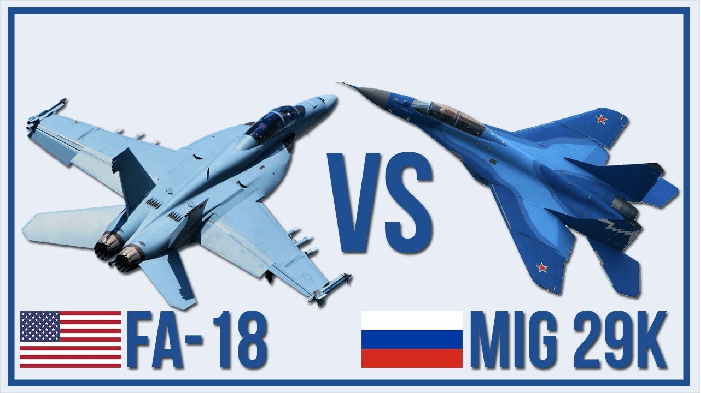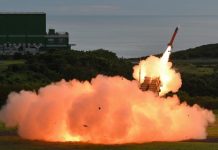After the Russian Foreign Minister’s criticism of the QUAD, the India-Russia summit has been canceled for the first time in two decades. There were reports it was canceled due to Covid-19 and others say the US and its companies are slowly ingressing in India and Moscow is expectedly displeased.
Analysts have argued simmering tensions between India and Russia over New Delhi’s close friendship with the US and other Quad members has angered Moscow.
In a scathing attack by the Indian opposition on the Modi government, Congress party’s Rahul Gandhi said that Russia is India’s “very important friend” and “damaging our traditional relationships is short-sighted and dangerous,” sharing the news of the canceled.
Russia is a very important friend of India.
Damaging our traditional relationships is short-sighted and dangerous for our future. pic.twitter.com/U5VyFWeS6L
— Rahul Gandhi (@RahulGandhi) December 23, 2020
Clarifying its position, the Indian Ministry of External Affairs (MEA) issued a statement saying that the summit was canceled in the wake of the COVID-19 pandemic.
This was a mutually agreed decision between the two governments. Any imputation otherwise is false and misleading. Spreading false stories in important relationships is particularly irresponsible,” foreign ministry spokesperson Anurag Srivastava said.
Please see our response to a media report regarding the India-Russia Annual Summit. pic.twitter.com/BShPqq8NTR
— Anurag Srivastava (@MEAIndia) December 23, 2020
At a time when India-China tensions are peaking, New Delhi closing in with the Quad partners namely – Japan, the US and Australia have irked Moscow with the Russian foreign minister has accused “the West” led by the US of using India as an “object” in its “Anti-China games”.
Speaking at the general meeting of the state-run think tank Russian International Affairs Council on Tuesday, Russian Foreign Minister Sergey Lavrov displayed his contempt for the Quadrilateral or the Quad – an informal strategic forum between the United States, Japan, Australia, and India. Beijing sees this as an anti-China group to deter its strategic missions.
“India is currently an object of the Western countries’ persistent, aggressive and devious policy as they are trying to engage it in anti-China games by promoting Indo-Pacific strategies, the so-called ‘Quad’, while at the same time the West is attempting to undermine our close partnership and privileged relations with India,” Lavrov had said.
Kanwal Sibal, a former Indian Ambassador to Moscow, tweeted saying that Lavrov’s remarks “implicitly condone China’s move as a response to US manipulation of India. China presented as a victim, not India. Not right message to India.”
Lavrov covering for China with 50000 troops in Ladakh&changing explanations for violating all past agreements is surprising. His remarks implicitly condone China’s move as response to US manipulation of India. China presented as victim not India. Not right message to India. https://t.co/OCF8ikrlYj
— Kanwal Sibal (@KanwalSibal) December 10, 2020
Following Lavrov’s comments, Anurag Srivastava, Indin MEA spokesperson pushed back saying that India has always pursued an independent foreign policy based on its national interest. “India’s relationship with each country is independent of its relations with third countries,” he said.
India’s strengthening relations with the US has cast aspersion on India and Russia that share a “special and privileged strategic partnership.” While Russia is the biggest arms supplier to India, New Delhi is now keenly looking at the US and other Western nations.

According to data compiled by Stockholm-based thinktank, SIPRI, since 2014 when the Bharatiya Janta Party (BJP) came to power, India’s prime supplier for military equipment has been Russia with US$9.3 billion worth of exports to India. The US is trailing behind with only US$2.3 billion worth of export in the same period.
The most recent example is Boeing’s success in F/A-18 Super Hornet operating from a “ski jump” ramp, demonstrating the fighter jet’s suitability for India’s aircraft carriers. Exerts talking to the EurAsian Times confirmed that Super Hornets are hot contenders for the Indian Navy but the eventual decision is political.
Unlike the American carriers that have very long runways, Indian aircraft carriers have shorter runways and a tilted “ski-jump” angle. Since India’s first carrier INS Vikramaditya was a modified version of the Russian Kiev-class, Russian aircraft are more suitable for Indian carriers.
India’s second carrier, INS Vikrant that is undergoing trials and is capable of operating a STOBAR (short take-off but arrested delivery) system.
STOBAR is a system used for the launch and recovery of a fighter jet from the deck of an aircraft carrier. The system combines the elements of Short Take-Off and Vertical Landing (STOVL) with Catapult-Assisted Take-Off But Arrested Recovery (CATOBAR).
Ankur Kanaglekar, Head India Fighters Sales, Boeing Defense announced during a webinar on Monday that the F/A-18 Super Hornet’s “first successful and safe launch from a ski-jump begins the validation process to operate effectively from Indian Navy aircraft carriers.”
This is a yet another blow to the Russian Mig-29K which is a hot contender for the Navy’s contract to acquire 57 new naval fighters for operations from the carriers.
The 4+ generation MiG-29K possesses a multi-function radar and hands-on-throttle-and-stick (HOTAS) controls. Along with air to air missiles, owing to the integration of RVV-AE, it also carries anti-ship and anti-radar operations and several surface precision-guided weapons.
Experts argue that in a dogfight, the MiG-29’s speed and the power of the AA-11 archer will give it an advantage, while Hornets offer better situational awareness for the pilot.
However, to Russia’s bad luck, recently a Mig-29K trainer fighter crashed in the Arabian Sea killing one pilot. This is the third such crash of an Indian MiG-29K in almost a year and questions have been raised over the serviceability of the aircraft. According to experts, only one-third of a fleet of 45 aircraft remains in operation due to serviceability issues.
Now, with Russia-India ties seeming troubled, there are strong indications that New Delhi may further slip away from Moscow especially in big defense deals.
Follow EurAsian Times on Google News




